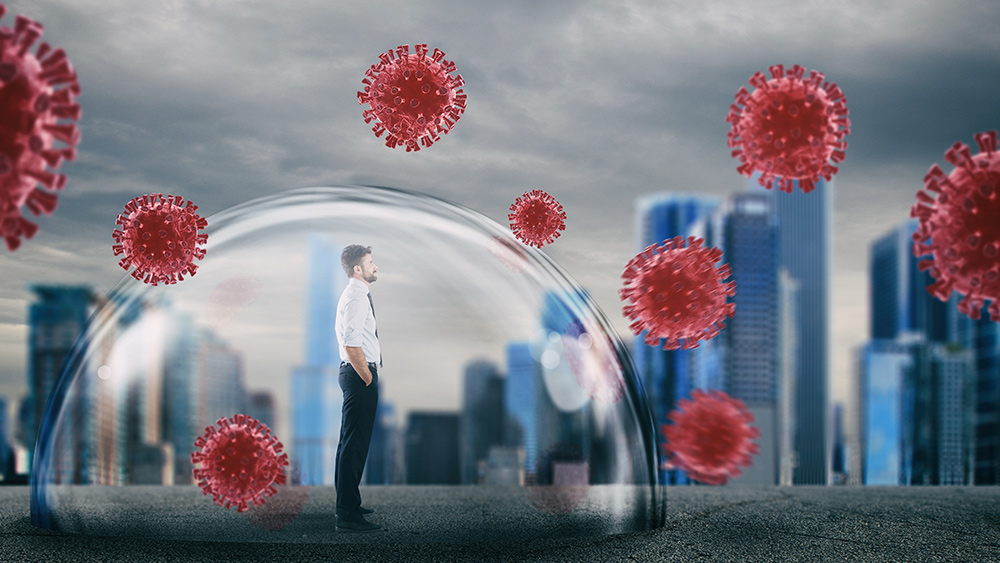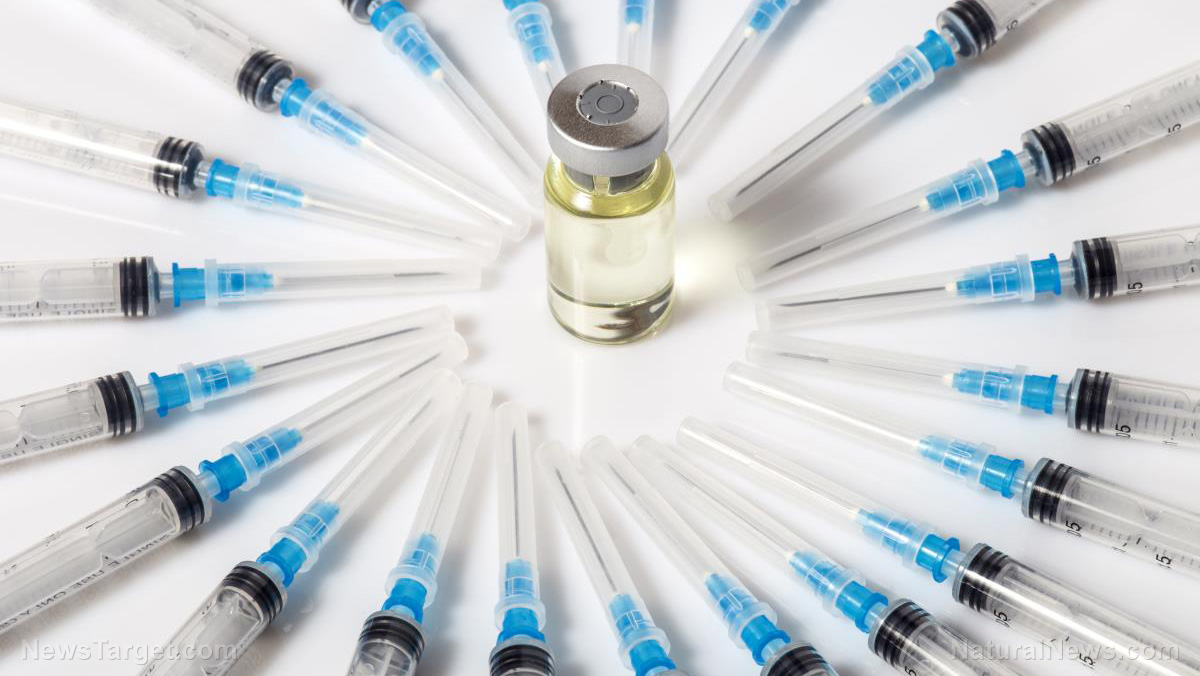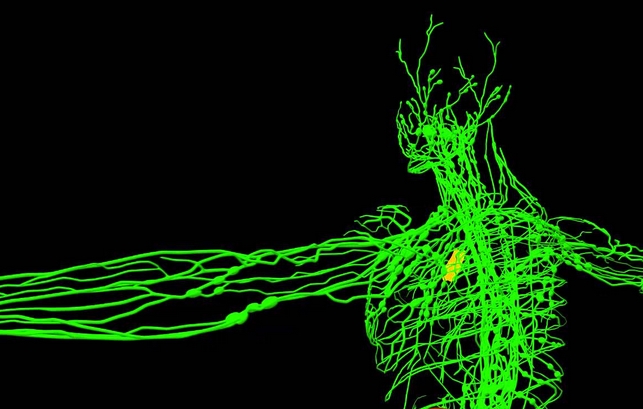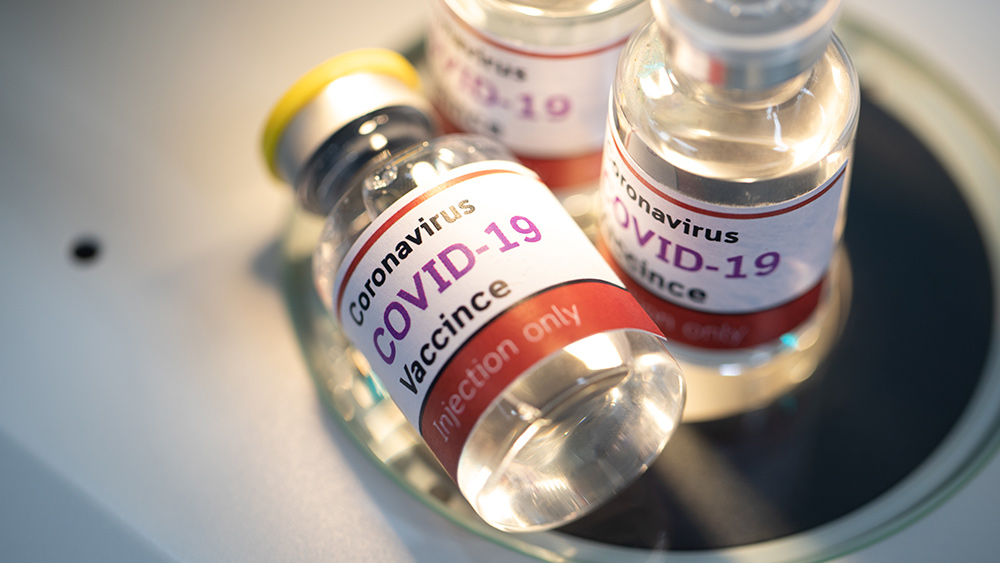Young adults who previously contract Wuhan coronavirus are unprotected against reinfection – study
04/28/2021 / By Ramon Tomey

Young adults who previously contract the Wuhan coronavirus and subsequently recover are not protected against potential reinfection, according to a study. Findings suggest that the presence of antibodies after the initial infection is not enough to prevent later reinfections.
Researchers from the Icahn School of Medicine at Mount Sinai looked at data obtained from more than 3,000 healthy members of the U.S. Marine Corps. The service members aged 18 to 20 years old were observed during the study period of May 2020 until November 2020. The researchers found that about 10 percent of the service members who were previously infected with the Wuhan coronavirus contracted it again.
According to the April 15 study published in The Lancet, 19 of 189 Marines infected with COVID-19 caught the virus once more. This was compared with new infections found in 50 percent of participants – 1,079 out of 2,247 service members – who had not contracted the pathogen. Marines who tested positive a second time during the study period were isolated, with researchers conducting additional tests. Meanwhile, Marines who were newly infected with COVID-19 had their neutralizing antibody levels taken.
The study authors then looked at their findings to compare the antibody responses of re-infected and newly infected Marines. Through the findings, the authors also sought to understand why the re-infections occurred.
They discovered that in those who tested positive for the Wuhan coronavirus, re-infected Marines had lower antibody levels against the virus than the newly-infected Marines. In addition, re-infected service members had about 10 times less of the pathogen in their body compared with service members who were infected the first time.
The findings suggest that some re-infected people could transmit the virus, but the authors noted that this theory merits further scrutiny. The researchers also noted that while their study looked at young, fit and mostly male recruits – the risk of reinfection will also extend to young people regardless of gender.
Even vaccines would not be sufficient to protect young people against the Wuhan coronavirus
According to the researchers, the crowded living conditions on a military base and the close personal contact required for basic training played a role in the pathogen’s transmission among the Marines. Thus, they called for vaccination to boost immune responses, prevent reinfection and reduce transmission.
Professor and senior study author Dr. Stuart Sealfon warned young people that despite recovering from a prior infection, they can still contract the Wuhan coronavirus again. “Immunity is not guaranteed by past infection, and vaccinations that provide additional protection are still needed for those who have had COVID-19.” Sealfon and the other authors exhorted young people to get vaccinated whenever possible. (Related: Immunity to the coronavirus lasts at least 8 months after infection, study says.)
But it appears that getting vaccinated does not prevent the transmission of the Wuhan coronavirus at all. Two particular variants of concern – the B117 strain from the U.K. and the B1351 strain from South Africa – have been found to be more infectious compared to the original strain. In fact, a study conducted by Israeli researchers discovered that these two variants may break through vaccine-induced immunity.
A team of researchers from Israel’s Tel Aviv University (TAU) and health care provider Clalit Health Services found that people who complete the two-dose Pfizer/BioNTech mRNA vaccine were eight times more likely to contract the South African B1351 strain. Meanwhile, those who receive at least one dose of the BNT162b2 jab were also more susceptible to contracting the U.K. B117 variant. (Related: Covid-19 injections are spreading new “variants” of coronavirus.)
The Israeli team looked at the COVID-19 tests results of 800 citizens for their study. Half of the test results came from people who were vaccinated with the Pfizer jab, while the other half came from unvaccinated Israelis. The research aimed to determine if immunized people were more likely to catch variants of concern compared to those who were not.
The researchers found that in people who completed the two-dose vaccination schedule, the South African strain was eight times more prevalent vis-à-vis unvaccinated people – at 5.4 percent versus 0.7 percent. The British variant was of equal prevalence as the South African strain in individuals who got two vaccine doses. However, it had a higher occurrence in people who got at least one dose of the Pfizer jab.
Speaking to the Times of Israel, lead researcher and TAU professor Adi Stern remarked: “We found a disproportionately higher rate of the South African variant among people vaccinated with a second dose, compared to the unvaccinated group. This means that the South African variant is able, to some extent, to break through the vaccine’s protection.”
Visit Pandemic.news to read more articles about COVID-19 reinfection and transmission.
Sources include:
Tagged Under: antibody levels, coronavirus infection, covid-19 pandemic, immune system, neutralizing antibodies, post-infection immunity, US Marine Corps, viral reinfection, Wuhan coronavirus
RECENT NEWS & ARTICLES
ImmuneSystem.News is a fact-based public education website published by Immune System News Features, LLC.
All content copyright © 2018 by Immune System News Features, LLC.
Contact Us with Tips or Corrections
All trademarks, registered trademarks and servicemarks mentioned on this site are the property of their respective owners.



















